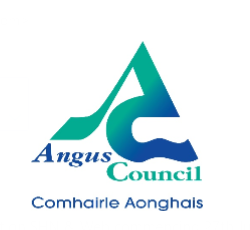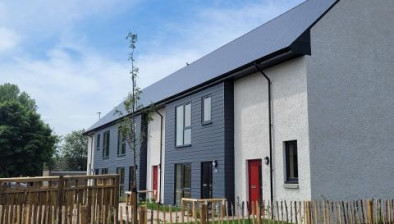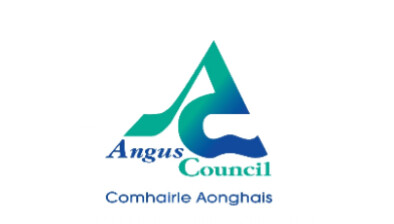Angus Council to consider Budget proposals this week

Angus councillors will be asked this week to consider a range of measures proposed by the council.
These include budget proposals that seek to meet a significant funding gap, respond to the challenges and impact of the COVID-19 pandemic and keep costs to residents as low as possible, while supporting those in need and ensure excellence in educational provision.
At their meeting on March 3, the Full Council will hear that the council’s budget has been adversely affected by increasing inflation with costs for energy, fuel, food and other materials required for service provision rising significantly just as they are for households. It will also hear that there has been increased demand for some services where there is greater need.
Managing cost and demand pressures has been challenging for many years but the scale of the problem for 2022/23 is a major concern. The Scottish Government grant which pays for 81% of the council’s costs is rising significantly for 2022/23 but almost all of that increase is either ring-fenced or for new service provision.
The government grant settlement for Angus includes an estimated increase of only £1.1 million to cover rising costs, many of which are either outwith the council’s control or where the council has limited influence. For example, increases in 2022/23 to pay costs arising from nationally negotiated pay deals will cost the council £2.8m, based on an estimated pay rise of 1.5%.
In addition, in 2021/22 the council achieved a balanced budget, by using reserves of £3.7m on a one-off basis. That shortfall must once more be addressed, meaning that in total, the council must close a funding gap of £13.9m to balance the 2022/23 revenue budget. It is within this context that the council has to balance the needs of the citizens, plan for the future and recover from the impact of the Covid-19 pandemic, while exercising the financial prudence that has long been the hallmark of Angus Council.
Councillor David Fairweather, council leader, said: “As we look towards a future where hopefully we can learn to live with the COVID 19 virus, we have brought forward a budget which looks to the future while dealing with the financial realities of the day. Our investment plans are balanced with challenging savings which must be achieved which in part make for sombre reading.
“The plain fact is that this approach to local government funding is not sustainable – a system where year after year, all or most of any grant increase is only for new things that Government want us to deliver. It ignores the financial realities of pay and other inflation on a system which will inevitably fall over at some point. Given the scale of savings already made by the Council (including those proposed for 2022/23 - a total of more than £78m in the last 10 years) there has to be significant concern about how further necessary reductions in costs, totalling £34.9m by 2025, can be made without drastic and damaging reductions to services. We’ve had a decade of this approach now and we have to be much clearer that this is going to mean very deep cuts in future unless something changes.
“However, as a council we must continually aspire to create an Angus which protects those in need, while providing opportunities for economic growth. This budget represents a vital balance between dealing with the financial constraints imposed upon us, supporting citizens and planning for a positive future for Angus.”
The papers show the council’s ambitious plans to invest £176m on capital projects up to March 2026 which include significant investment in roads and transportation infrastructure, recognising its role in supporting the Angus economy, education system and health and wellbeing opportunities.
Other significant investments include maximising the opportunities within the Tay Cities Deal (£21m) which will bring economic benefits to Angus now and in the future, £58m on the school estate to provide the young people of Angus with the best facilities possible, including the new Monifieth High School (£49m), the most significant investment for the council to make for many years to come. Further, £15.2m is proposed to invest in flood and erosion protection schemes, which will protect homes and businesses at risk across Angus.
The proposed budget also contains a total of £2.5m of budget issues and investments which will be recommended for inclusion in the council’s 2022/23 revenue budget. £1.6m of these budget proposals would be ongoing (permanent) additions to the budget while £0.9m would be funded on a one-off basis (from Reserves).
These include significant inflationary increases in charges for; school transport (£105,000); unitary charges on PPP Schools (£720,000); winter maintenance, to prevent service reduction (£91,000).
Councillors will also be asked to approve one-off provision to continue the Holiday Food and Fun initiative, which extends Angus’ offer across all school holidays and not just the six weeks of summer holidays (£180,000) provided for by the Scottish Government, and the Glen Clova Project which focus on addressing child poverty in pre-birth and very early years and delivering early support across a range of groups and partnerships to meet wellbeing needs. The continued funding of these projects reflects feedback from the council’s trial budget consultation exercise over the summer of 2021 in which respondents rated tackling child poverty as their highest priority.
The proposed budget also includes significant savings from the council’s Change programme (£6.8m) which includes a £100,000 saving from a reduced contract price reflecting a more favourable market on mixed recycling, a position which favours Angus Council, being the top recycling council in Scotland and winner of a CoSLA award in 2022 for service redesign in Waste Services.
It also includes a recommendation to extend the suspension of car parking charges agreed at Angus Council on 12 September 2020, until 31 March 2023 at a cost of £378,000 to further assist Angus towns recover from the adverse effects of pandemic on local businesses.
The council will also be asked to approve, along with other council business, the updated Council Plan, Finance and Change Plan and Workforce Action Plan which collectively sets the direction for the council, its priorities, ambitious service redesigns and savings plans.
Councillor Mark Salmond, communities and finance convenor, added: “We undoubtedly face a very challenging financial position, we must continue to strive for the future, supporting the people of Angus to recover from Covid 19. We recognise that households are experiencing the same Inflationary pressures that the council is facing. Many families will be worried about their own financial stability, and we have considered this in our deliberations on the rate of council tax.
“Angus currently has the second lowest Council Tax in mainland Scotland, but the financial pressures caused by inflation make it very challenging to avoid Council Tax increases if Council did not absorb all of our cost increases, it would need a £163 (13.6%) increase in Council Tax. We are also keeping our council house rents low and keeping parking free in Angus until we recover sufficiently from the pandemic.
“However, in this budget we are also bringing forward major infrastructure investments which will help reduce costs in the long run and renews our commitment to our school estate to ensure the best education for our young people, including support for them and their families during the school holiday periods.
“I would also like to thank those who took the time to respond to our budget consultation exercise, as this was helpful in making decisions in the preparation of our proposals, and I would encourage everyone to engage with future consultations.”
Angus Council chief executive Margo Williamson, said: “I am incredibly proud of the Angus Council response to the pandemic and the more recent storms. Our staff continue to demonstrate admirable resilience and dedication as we now move towards a period of recovery and adjustment. We have continued to adapt our ways of working to better support our communities throughout the pandemic while minimising the impact of financial constraints on service delivery.
“We are asking members to agree the recommendations in a number of reports being placed before them at council on Thursday. We need to provide clarity for citizens around the solutions on offer to ensure the wellbeing of our citizens and resilience of our local businesses.”








